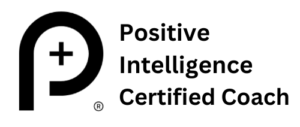I don’t know about you, but the holidays are one of my biggest sources of mindfulness failure.
My husband and I are both products of Jewish/Christian marriages. We enjoy celebrating the cultural traditions of Thanksgiving, Chanukah, and Christmas, focusing on gratitude, the spirit of giving, time with family and friends, and connection with our community. Throw in a couple of family birthdays in December, and the to-do list this time of year becomes pretty long.
But even though I’ve been meditating and practicing other forms of mindfulness for a few years now, I seem to leave my basket of stress management skills on top of the car when I’m speeding off to the grocery store for Thanksgiving dinner ingredients. I fall back into my old habits of taking on too much, falling into the trap of perfectionism, worrying about gifts, and feeling overwhelmed.
So I was thrilled to see that my local independent coffee shop, Caffe Amouri, was hosting a talk a couple of weeks ago on “Mindfulness Practices for Staying Sane During the Holidays” by Trisha Stotler, a Vipassana mindfulness instructor and board member of the Insight Meditation Community of Washington.
I had heard of Trisha but hadn’t yet had an opportunity to sit in on one of her classes. The timing of her talk couldn’t have been more perfect.
Trisha opened with a lovely overview of mindfulness, which she described as “awareness in the present moment with curiosity.”
When we’re mindful, Trisha explained, we learn to identify the stories that our thoughts create. Sometimes these stories are the sole cause of our stress. Mindfulness trains us to let go of the stories and observe whether there are habits and patterns in our life that we want to change.
When we’re fully present, we’re not stressed, since the stories are always based in the past or the future. But most people spend most of their time immersed in those stories. “The new normal is generalized anxiety,” she said. I know that had been the case for me before I discovered the benefits of mindfulness.
Mindfulness helps us discern what’s most important to us, Trisha continued. If we can get quiet and pay attention to what our own heart is telling us, we can hear what’s important.
When someone asked what the difference was between mindfulness and meditation, Trisha explained that mindfulness is a component of meditation. Mindfulness is a quality of mind that is fundamental to meditating.
So how do we develop our game plan to stay sane in November and December?
TRISHA STOTLER’S MINDFULNESS STRATEGIES FOR THE HOLIDAYS
1. Be intentional.
Think about how you’d like your holidays to play out between now and January 1st. If you know you want things to be different than usual, what DO you want?
What are your priorities? Quality family time? More downtime for yourself? More time with friends? Less consumerism? More thoughtful gift giving? Healthier eating and drinking patterns than in past holidays?
Without intention, we will always take the path of least resistance. Trisha explained that our neural pathways are wired for old behavior patterns. We need to intentionally bulldoze fresh pathways to form new habits. Mindfulness creates those new neural pathways, paving the road to our objectives.
“When you find yourself at that ‘neurological fork in the road,’ the edgy place where you can almost feel yourself going down the old road, pause…reconnect with your intention by feeling it in your body,” she said.
Trisha asked us to reflect back on a pleasant holiday memory. How did we feel? What were the circumstances? Alternatively, we could think back to an unpleasant holiday experience to figure out what we want to avoid.
Once you’ve figured out your priorities, state them explicitly or, even better, write them down. Announcing your intentions out loud or on paper makes them more likely to come to fruition. Personally I’ve found that announcing my intentions to others makes me more accountable, increasing even further the likelihood of my reaching my goals.
2. Reorient Your Relationship to “Busyness”
I loved hearing Trisha clarify that having a lot to do is not inherently stressful. It’s how we relate to what we’re busy with that determines our level of stress.
When we feel stress in our bodies (for me this feeling usually manifests as tightness in my chest or a knot in my stomach, but it may be different for you), it means that something is out of whack with how we feel about what we’re doing.
If you’re feeling resentful about something on your to-do list, you’re out of alignment with what you want to be doing.
We can address this a few ways, starting with taking a mindful pause before saying “yes” to new tasks. Try listening to your body instead of those bullying thoughts that insist you have to bake cookies because your neighbor already dropped hers off at your doorstep. Some years this may feel like a fun, creative expression of gratitude for your friends. Other years it might feel stressful. Your body will tell you what your authentic priorities are in a given year if you listen closely enough and honor that message, rather than just doing something out of habit.
Trisha’s suggestion to make mindful decisions by simply asking your body, “Do you want to do this?” made so much sense to me.
3. Eat and Drink Mindfully
Mindful eating is a huge topic in mindfulness practice. Trisha explained that our habits around food are among our most strongly ingrained patterns.
Even if you’ve made progress in changing your eating habits, the holidays can pose an ominous threat to the best intentions. Having moved to a low carb and almost alcohol-free nutrition program earlier this year, this is an area that I’m particularly anxious about.
Gaining weight isn’t my primary concern. It’s that I know now how much better I feel when my head is clear and I’m not a slave to carb addiction, vs. being foggy headed and bloated with a few glasses of wine, bread, and mashed potatoes in my system. It might be a function of aging, though I’ve always been a pathetic drinker. Give me a third drink and I’ll either fall asleep or throw-up before I see the bottom of the glass.
I had a couple of cocktails with my husband several weeks ago when we were on vacation, since I didn’t want him to have to drink alone. Sympathy drinking is never a good idea, for me at least. I woke up in the middle of the night with a stabbing pain in my head and a voice of despair wailing, “Why did you do that to me? I do so much for you! Why didn’t you take care of me???”
It was an odd, grieving sort of feeling, linked to a loss of trust. My husband hadn’t pressured me at all to have those drinks, but I wanted to be fun and good company. If I had asked my body before I had made that decision, “Do you want to do this?” I would have gotten a loud and clear, “No thank you!”
But Trisha underscored that it’s important to not beat yourself up over a perceived “failure” like the one I just described. In fact, studies show that shame forces our intentions underground. Instead of calling yourself a loser, practice unconditional friendliness to yourself.
Stay curious and open, responding with “Isn’t that interesting?” Mindfulness is about approaching life nonjudgmentally. You can’t be curious and judgmental at the same time, since being curious is intentionally “not knowing,” whereas being judgmental comes from a place of “I am certain.”
Get quiet and take a good hard look at the pattern in question. I figured out that sympathy drinking or “I want to look fun” drinking doesn’t work for me. My husband was fully supportive when I shared my lessons learned with him.
New habits don’t happen overnight. Trisha likened it to turning around an ocean tanker.
So what do you do when you’re at that holiday party having stated your intention to not overeat?
Simply slow down. Start with gratitude for the food before you. Take care in making your selections. Stare at the food on the plate—notice the textures, colors, and aromas before it even goes into your mouth. Then take a bite and chew s-l-o-w-l-y. Savor every morsel, remain curious and in the moment with the food. You’ll feel full more quickly and more satisfied overall.
If you want to learn more about mindful eating, check out thecenterformindfuleating.org.
So what are your intentions for the holidays? Do you have strategies to offset holiday stress? I’d love to hear about them in the comments! Happy Thanksgiving!
***
If you enjoyed today’s post and are not yet a subscriber, sign up for my list today and receive my free ebook Six Playfully Mindful Strategies to Beat Procrastination and Boost Productivity. Along with the ebook, you’ll receive updates on the January launch of my new book Blooming into Mindfulness, weekly blog posts, and photography event news.
And if you know someone else who might benefit from a little mindfulness, please spread the word! Social media likes and shares are always appreciated as well.
From time to time I use affiliate links in my posts. Sales via these links provide a small commission, but I only include affiliates that I have tested out myself and believe will benefit my readers. Each will be noted in the post for full disclosure.
Finally, if you find typos anywhere on my site, I’d be grateful if you let me know. I hate typos! Contact me so that I can correct the error. Thank you!



